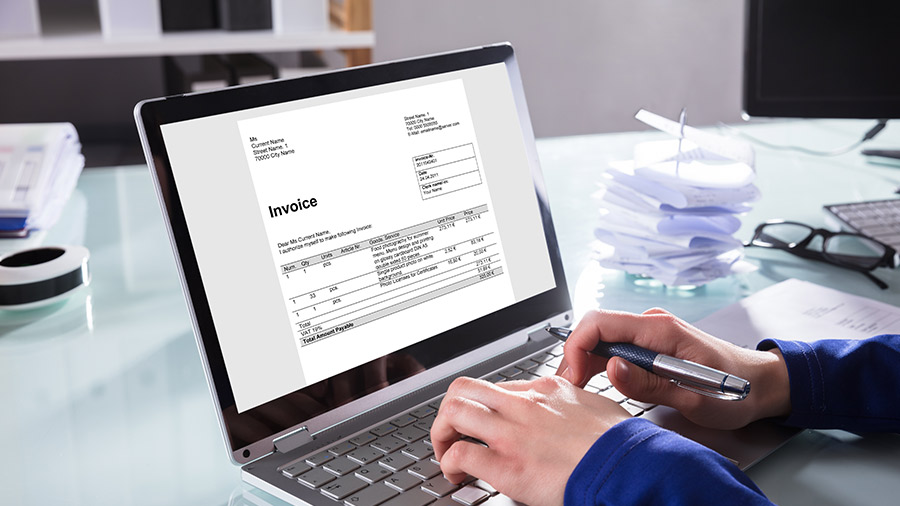Previously, financial transactions were at the top of the list of workloads, but with the development of information technology in this field, electronic financial transactions became one of the most easy aspects of any work in the field. Invoices, which fall under the umbrella of financial transactions, were one of the things that increase the burden on the business owner, due to the lack of flexibility in their einvoice management, collection, inventory and analysis.
What is the egypt e-invoicing?
It is the conversion of paper invoices into a digital image, which is received, reviewed, and approved by the Egyptian Tax Authority now of registration.
The review is for formalities; In terms of the availability of all the required data and the credibility of its ownership of the issuing company by matching it with the electronic seal.
In addition, certification by assigning a unique code to each UUID document that legally proves the authenticity of the electronic invoice to conduct the tax rules on it.
What is the electronic invoice system in Egypt?
The einvoice software in Egypt is a procedure aimed at transforming the traditional process of issuing paper invoices and notices (such as handwritten or scanned) into an electronic process that allows the exchange of invoice data and debit and credit notices and the related processing operations from modification and sending to the customer and the tax authority electronically on Towards an organized manner between the relevant parties in a comprehensive electronic format.
What data should be available in the Egyptian electronic invoice?
Invoice serial number.
Release Date.
The name of the financier (the owner of the company or his authorized representative from among his employees).
The company’s tax registration number.
The delegate’s address/or the company’s address.
Buyer’s name.
Buyer tax registration number.
Buyer’s address.
The product/service offered.
The value of the product (its price).
The tax category of the product.
Tax value.
Total invoice.
Who are the companies implementing the electronic invoice system in Egypt?
In cooperation with the Egyptian Tax Authority, two leading companies in the technology industry are implementing the system, namely:
Microsoft executing the solution.
IBM is responsible for the automated processes.
The Egyptian experience is inspired by the experience of Mexico, due to its success, and the similarity of the tax societies of both countries.
What are the components and form of the Egyptian electronic invoice?
To explain the electronic invoice system, it is necessary first to mention its main components, which are:
UUID unique invoice number
Electronic signature/electronic seal
Electronic invoice data
Standard codes for goods and services
The aforementioned components are developed, in addition to setting standards regarding the method of electronic invoice conversion, transmission, processing, analysis, validation and legal status; Through the relevant departments in the country such as the entity responsible for taxes, in order to increase efficiency and effectiveness between the parties involved in this process and to intervene in the resolution of emerging disputes if necessary.
What are the documents that classify an Egyptian electronic invoice?
Documents issued through an accounting program only are considered an electronic invoice and exclude those that are issued in either XML or PDF/A-3 format, since invoices issued through various editors such as Word or Excel in Doc or PDF format are not considered an electronic invoice, as are invoices Handwritten, scanned, or invoiced unstructured on a web page or in an email.
What companies are obligated to apply the electronic invoice in Egypt?
The Egyptian electronic invoice project is one of several stages that seeks to digitize all tax transactions. There are two main projects concerned with converting all invoices issued by commercial entities into a digital image:
E-invoice project
It is the project that has been launched since late 2020, and 6 phases of it have been implemented so far, and it includes the category of B2B companies, that is, companies whose consumers fall under the category of companies as well.
The first stages The large companies that have technological means that allow them to integrate with the system and absorb its merits were selected easily.
Moreover, the categories of companies that joined them were diversified to include all industries, to ensure the flexibility of the system and its full absorption of the different commercial categories, which supports the expansion process in the following stages.
Electronic Delivery Project
The Electronic Receipt Project means the digital documentation of invoices for B2C companies, that is, companies that deal directly with individual consumers. The project aims to include the informal economy, that is, business owners who are not registered for tax, at all economic levels.
Which companies are obligated to activate the electronic invoice in Egypt so far?
The first three phases included the companies of the Senior Taxpayers Center.
The center includes companies whose turnover exceeds 100 million pounds, and they generate approximately 80% of tax transactions.
Then came the next stages to include the companies of the Center for Mediterranean Financiers and the Center for Senior Professions.
Government agencies that have sales transactions for profitable goods and services have been obligated to join the system, as well as suppliers dealing with these government agencies.
Agricultural crops companies.
Some areas, such as Cairo, a fourth, the system has been fully applied to them.
Some joint stock and investment companies.
The Tax Authority plans to include all companies belonging to the B2B category successively.
In addition, you can check through the following link if your company is currently obligated to implement the system through the tax registration number:

